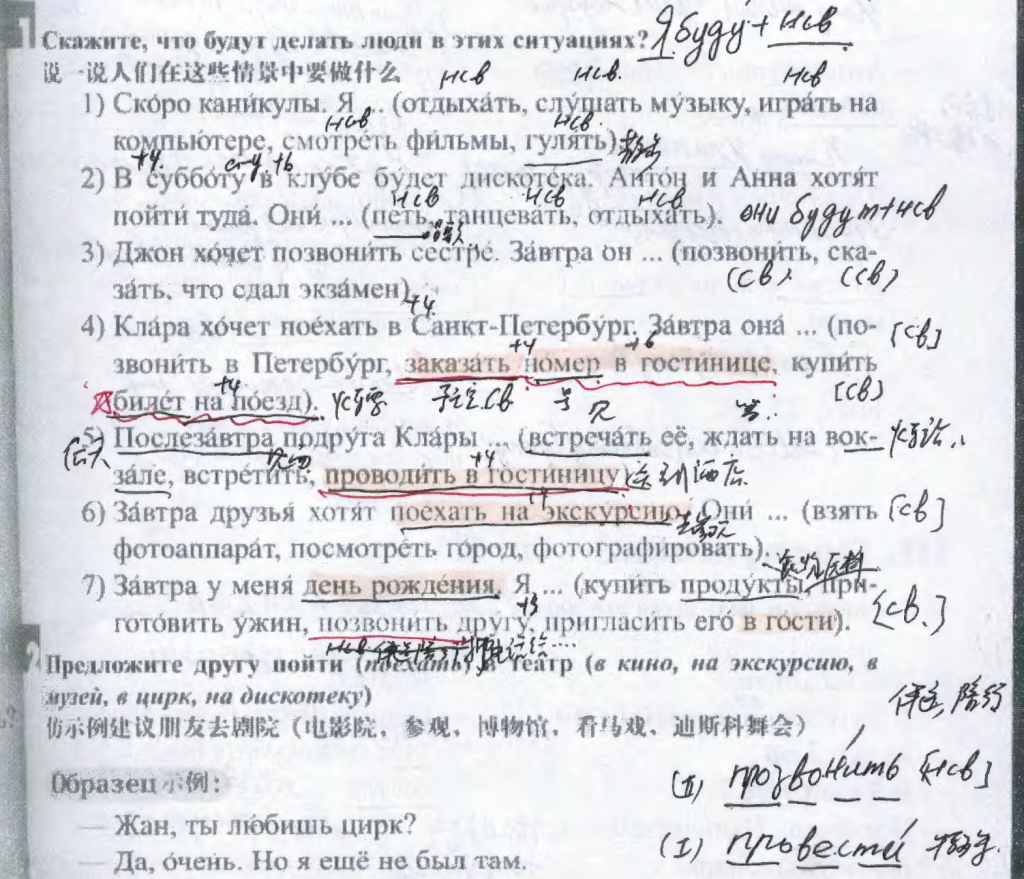
让我们…几点见面吧!


一步一步学俄语



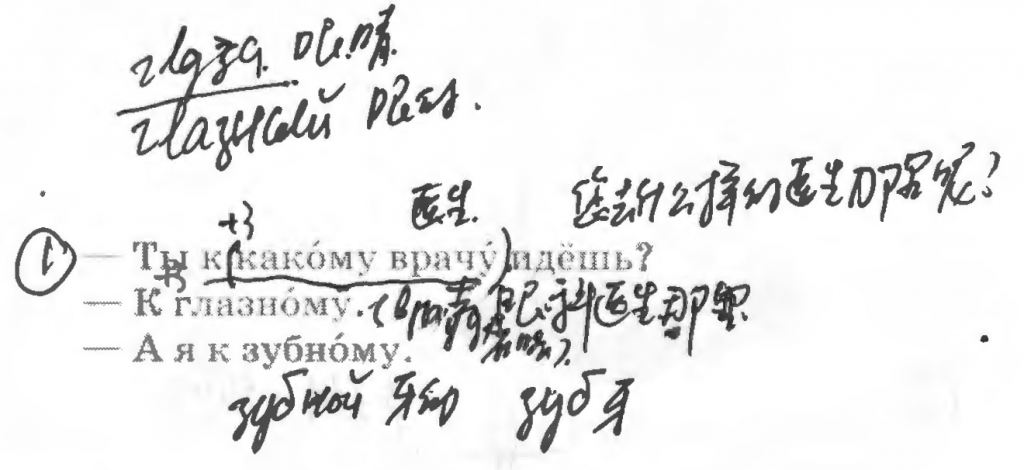

пое́хать 乘交通工具去,来 св поедем(те) 定向 I 特殊 поеду поедешь поедет поедуем поедуете поедут пое́хал пое́хала пое́хали пое́хало
想去哪(何时,为什么)

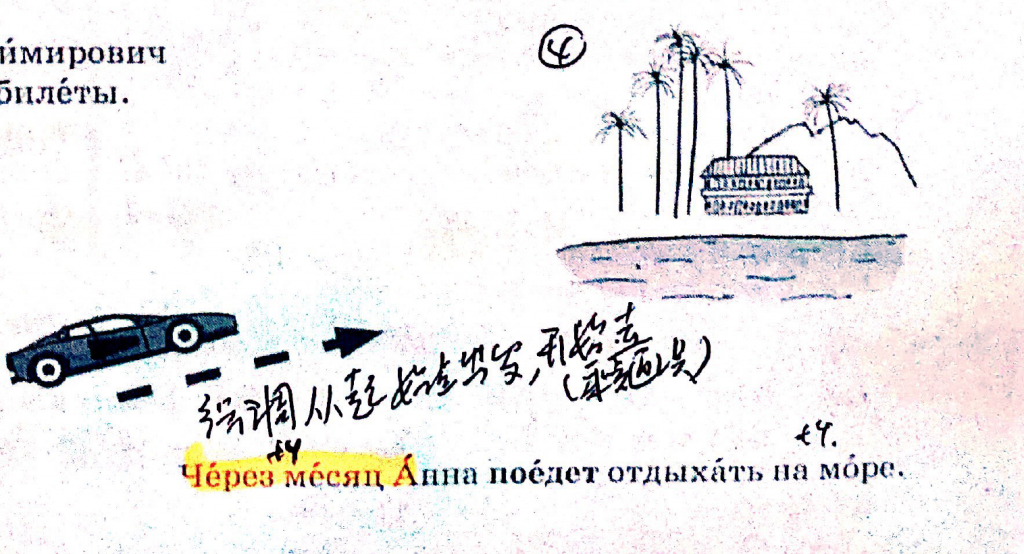


пойти 走、 去 св 走|去一趟 пойдём(те) 定向 I 特殊 пойду пойдёшь пойдёт пойдём пойдёте пойдут пошёл пошёла пошёли пошёло


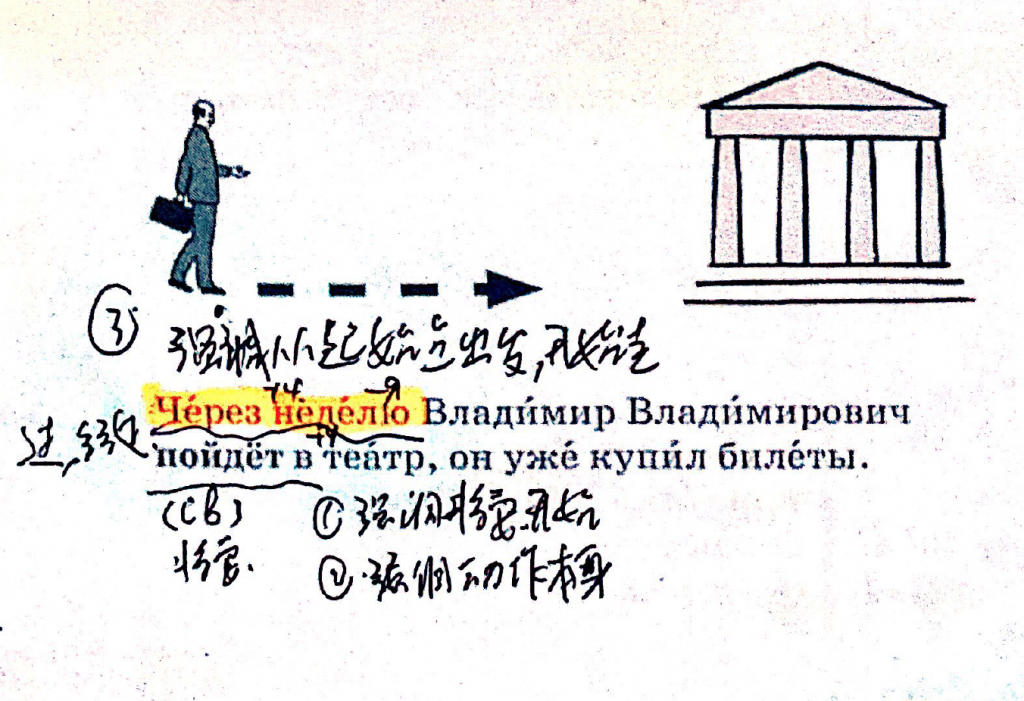


своими глазами 亲眼看到





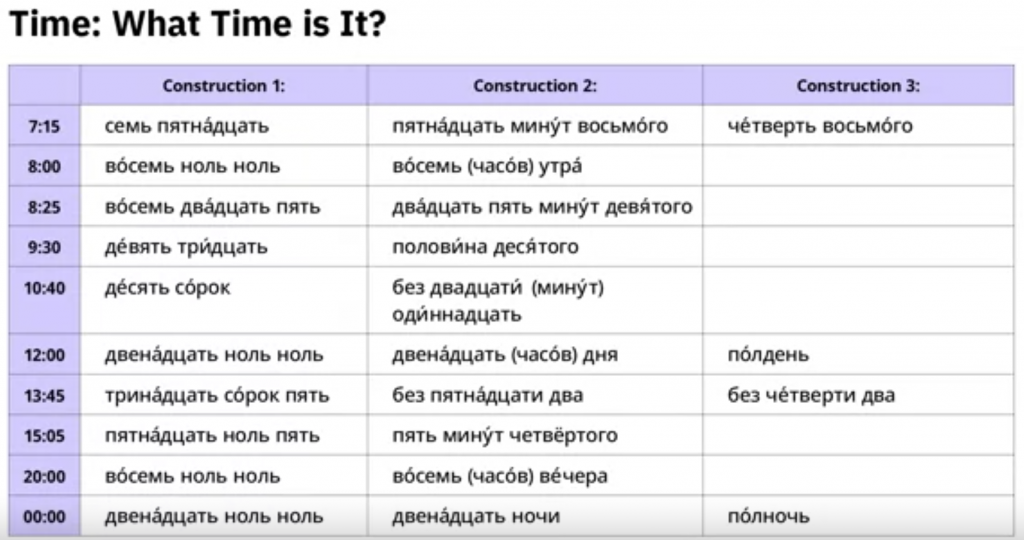
четверть 一刻. третий час第三个时段 половина 二分之一. ноль. день – дня полдень полночь
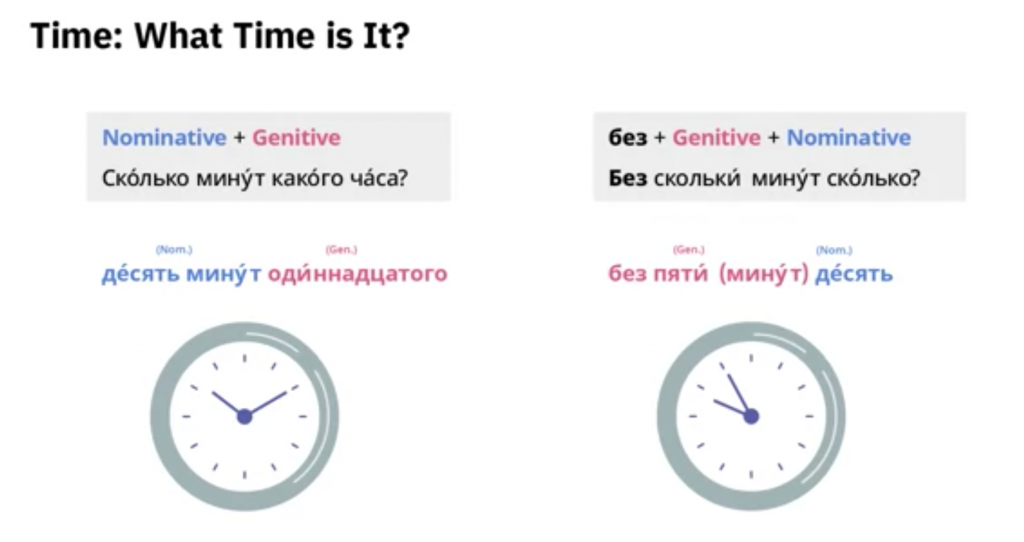
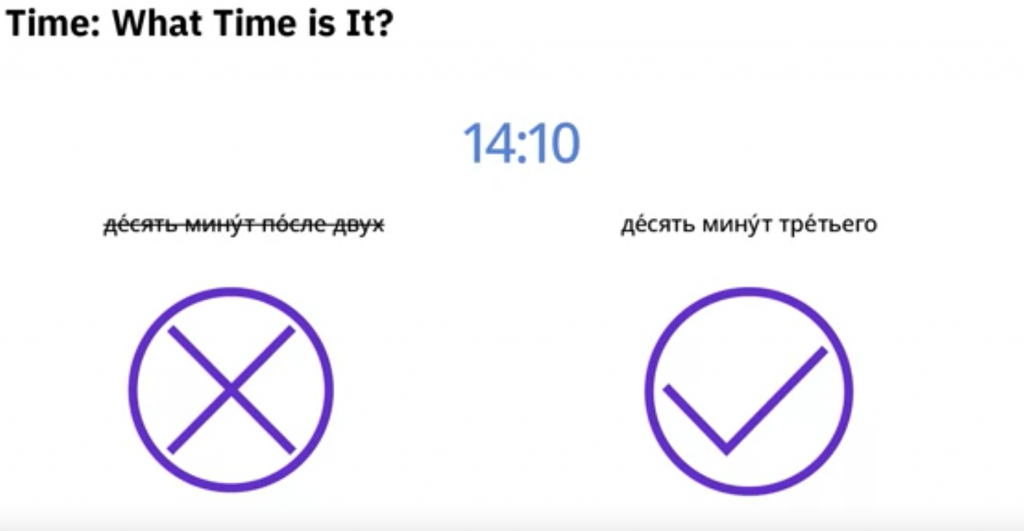

回答 сколько времени?的问题用未完成体(= как лолго?多久/多长时间了?),强调动作用了多长时间。


сколько сейчас времени = который час?
сколько 多少,+2格 Время二格 времени






| нсв | св | |
|---|---|---|
| 将来时 | буду читать | прочитатю |
| 我将要读书 | 我要把书读完 | |
| 现在时 | читаю | —— |
| 我在读书 | ||
| 过去式 | читал | прочитал |
| 我读过了 | 我读完了 |














试比较 стать (св) / быть (нсв)
Being too lazy to make up many different verbs, we usually make new ones based on the old ones. The vast majority of unprefixed verbs are imperfective.
The last phenomenon is known as suppletion and only happens for a limited number of verbs and their derivatives. The English verb “to go” is another example of such behavior (its past form is “went”).
Note that suffixation is very popular for secondary imperfectives. Usually only one prefixed verb is considered an “ideal match” for an imperfective verb. Others are somewhat different in meaning (or a lot different). But you need imperfective partners for these, too, so Russian uses suffixes for that:
imperfective verbs
Perfective verbs describe events: singular, definite actions that are viewed as localized in time. They “happened” at some moment (“I made a video”, “I slept for some time and then went outside”). Or they describe a certain change of state at some “turning point” (not yet eaten→eaten, not slept enough→slept enough and ready to get up).
It is argued in a few works that “a natural” perfective is just a prefixed verb where a prefix’s metaphorical meaning so conveniently overlaps the verb’s own meaning, that you cannot feel any change. So don’t be surprised if some vague actions have several perfective matches for a single imperfective verb.
That also means that sometimes you’d better memorize a pair even if it is technically a “poor” match. After all, in some contexts it will come in handy:
Certainly use imperfective when specifying the manner in which the action should be performed.
Use perfective when asking for a simple action that is not a really obvious next action.
(for example, with “please” and following details; it is rare you would politely ask for an obvious thing to do)
There is also the important permission/denial pattern: use imperfective when NOT letting something.
| MAY YOU DO IT? | Example |
|---|---|
| yes + imperf. | «Можно открыть окно?» — «Да, открывай». (I don’t mind) |
| yes + perf. | «Можно открыть окно?» — «Да, открой». (support) |
| neg. + imperf. | Не открывай ничего. (do not allow) |











